Organizers: prof. Magdalena Wrembel and prof. Anna Ewert.
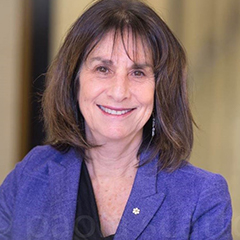
Date: 21/10/2021
Ellen Bialystok is a Distinguished Research Professor of Psychology and Walter Gordon Research Chair of Lifespan Cognitive Development at York University in Toronto and Associate Scientist at the Rotman Research Institute of the Baycrest Centre for Geriatric Care. She is an Officer of the Order of Canada and a Fellow of the Royal Society of Canada. Her research uses behavioral and neuroimaging methods to examine the effect of bilingualism on cognitive processes across the lifespan. Her discoveries include the identification of differences in the development of essential cognitive and language abilities for bilingual children, the use of different brain networks by monolingual and bilingual young adults performing simple conflict tasks, and the postponement of symptoms of dementia in bilingual older adults. In 2017 she was granted an honorary doctorate from the University of Oslo for her contributions to research.
Keywords: bilingualism, executive function, attention, development, aging
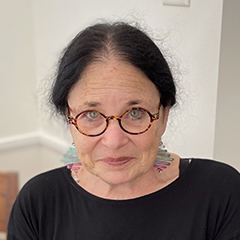
Date: 18/11/2021
Judith F. Kroll is Distinguished Professor in the Departments of Language Science and Psychological Science at the University of California, Irvine. She held faculty positions at Swarthmore College, Rutgers University, and Mount Holyoke College and Penn State. Her research concerns the way that bilinguals juggle the presence of two languages in one mind and brain. Her team’s work, supported by grants from NSF and NIH, shows that bilingualism provides a tool for revealing the interplay between language and cognition that is otherwise obscure in speakers of one language alone. She is PI on a PIRE grant from NSF to develop an international research network and program of training to enable language scientists to pursue research abroad on the science of bilingualism. She is a Fellow of the AAAS, the APA, the APS, the Psychonomic Society, and the Society of Experimental Psychologists. She was one of the founding editors of the journal Bilingualism: Language and Cognition, and one of the founding organizers of Women in Cognitive Science.
Keywords: bilingual language processing, language learning, cognitive control, variation in language experience, interactional contexts

Date: 9/12/2021
Jean-Marc Dewaele is Professor of Applied Linguistics & Multilingulism, Department of Applied Linguistics & Communication at Birkbeck, University of London. He is the Director of the Centre for Multilingual & Multicultural Research, former president of the International Association of Multilingualism, former president of the European Second Language Association, member of Executive Committee of the International Association for the Psychology of Language Learning. His research interest relate to individual differences, sociopragmatics, psychology of language learning, foreign language acquisition, multilingualism, learner and teacher emotions. In particular, Jean-Marc Dewaele focuses on the linguistic, pragmatic and socio-cultural challenges that multilinguals face in communicating and recognising emotions in different contexts as well as methodological, epistemological issues in the field of applied linguistics and multilingualism research.
Keywords: Multilingualism, emotion, emotional resonance, language embodiment
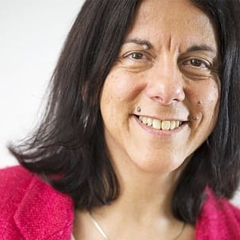
Date: 20/01/2022
Antonella Sorace is Professor of Developmental Linguistics at the University of Edinburgh. She is a Fellow of the British Academy, and a Fellow of the Royal Society of Edinburgh. In her career she has held research appointments and visiting professorships at numerous institutions, including the University of Utrecht, the University of Trondheim, the University of Tromsø, the Max Planck Institute for Psycholinguistics, Johns Hopkins University, Michigan State University, the University of Hamburg, and the University of Siena. Her research focuses on a number of interrelated questions that bring together linguistics, experimental psychology and cognitive science, and her research achievements and publications span different sub-fields of scientific enquiry. She is a world leading authority on bilingualism over the lifespan and is particularly well known for her studies of exceptionally talented adult second language speakers; attrition and bilingual language acquisition, language typology, and lexicon-syntax interface. She is the founding director of Bilingualism Matters international network and was awarded a Beltane Fellowship for Public Engagement.
Keywords: grammar, bilingualism, gradience, cognition, interfaces

Date: 3/03/3022
Marit Westergaard is Professor English Linguistics Department of Language and Culture at UiT the Arctic University of Norway in Tromsø and she also holds a professor position at the Norwegian University of Science and Technology in Trondheim. She is a fellow of the Norwegian Academy of Science and Letters. She is the Director of the AcqVA (Acquisition, Variation, and Attrition) Aurora Center and oversees several research projects on multilingual acquisition of morphosyntax, e.g. the MiMS project on Micro-variation in Multilingual Situations, funded by the Research Council of Norway, and MultiGender: A Multilingual Approach to Grammatical Gender at Centre for Advanced Study. Her research interests include first, second/third, and bilingual language acquisition, syntactic variation, diachronic change, comparative syntax, focusing on the multilingual context.
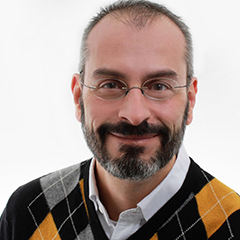
Date: 28/04/2022
Theo Marinis is Professor of Multilingualism at the University of Konstanz and at the University of Reading. His research focuses on language acquisition and processing across populations of typically and atypically developing learners and aims to uncover the nature of language processing in typical and atypical language development. His research has been funded by research councils in the UK (Real-time processing of syntactic information in children with English as a Second Language & children with Specific Language Impairment), the Netherlands (Cross-linguistic study of the production and processing of grammatical morphemes in L2 children compared to children with Specific Language Impairment), and Germany (Non-Canonical Questions in Early and Late Bilingual Language Acquisition). As part of the COST Action IS0804 ‘Language Impairment in a Multilingual Society’, he led the development of the LITMUS Sentence Repetition tasks for multilingual children across a large range of languages. He is currently coordinating the EU project ‘The Multilingual Mind’ that provides multi-disciplinary training on multilingualism to early stage researchers in Europe. He is the Director of the Center for Multilingualism at the University of Konstanz.
Keywords: multilingualism, bilingualism, language development, heritage language
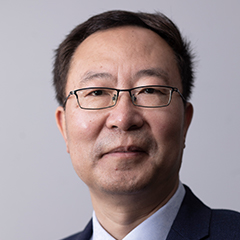
Date: 31/03/2022
Li Wei, PhD, MAE, FAcSS, FRSA is Director and Dean at the UCL Institute of Education and Chair of Applied Linguistics at University College London. He is a Member of Academia Europaea, and a Fellow of the Academy of Social Sciences, UK. His research centres around different aspects of bilingualism and multilingualism, including the acquisition of multiple languages in childhood, family language policy, education policy and practice regarding bilingual and multilingual learners of minoritized and transnational backgrounds, complementary schools, cognitive benefits of language learning, and impact of on social cognition and creativity. He is the author of the term and concept of translanguaging which has dominated the field of bilingual education in recent years.
Keywords: translanguaging, bilingualism, education, multicompetence, learning
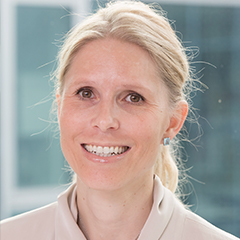
Date: 12/05/2022
Simone Pfenninger is Associate Professor of Second Language Acquisition and Psycholinguistics in the Department of English and American Studies at the University of Salzburg. She is a co-editor of the Second Language Acquisition book series published by Multilingual Matters, Vice President of the International Association of Multilingualism, and Vice President of the European Second Language Association EuroSLA. Her principal research areas involve multilingualism, psycholinguistics and the age factor in SLA, especially in regard to quantitative approaches and statistical methods and techniques for language application in education, EFL at different levels, the assessment of processes and outcomes in language education, and language policy.
Keywords: ageing; foreign language learning; individual learner differences; intra-individual variation; complex dynamic systems.
© 2023 All Rights Reserved